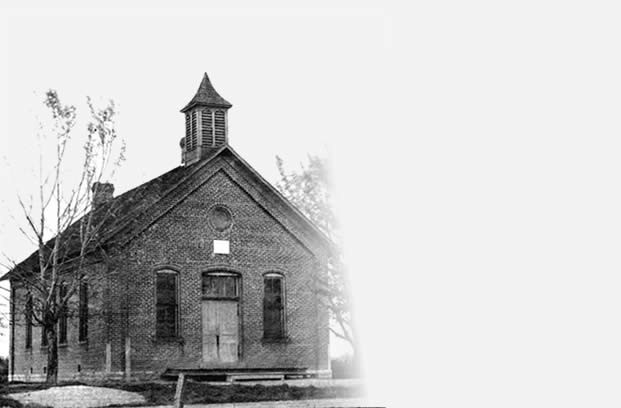NOTE: Although Jacob Leffel (1864-1954) was never a resident of the New Knoxville community, his parents were German immigrants to Kossuth, Ohio from Germany. This Andrew Kay interview, published in the Evening Leader in 1950, is very informative about life on a canal boat, farm labor, threshing crews, and life in general for German immigrants and their descendants in the mid to late 19th and early 20th centuries.
If you want information on “old-time-threshing”, and just in case you would like to own one of those big old-time threshing machines (which has long been in retirement) for your museum, see “Jake” Leffel of Kossuth. He can supply you with both the information and the machine. Jake Leffel is one of the few remaining big-time professional threshing men who was a thresher practically all his life, operating two “rigs” simultaneously and in season hulling clover, shredding corn, buzzing fire wood, chopping feed, operating a saw mill and running a farm, all at the same time. He began “going with a threshing machine” when he was still in his teens, acquired a partnership when 21, and made threshing his life long work.
“My parents came to this country from Germany. I remember mother telling that it was a terrible 90 day trip. They at first settled in the east and came the neighborhood of Kossuth when I was a child. I went to school when there was nothing else to do, but usually there was something to do, except maybe one or two days a week. So I didn’t learn much at school. Besides, the canal was so much more interesting. You see, my father owned a canal boat. As a boy I wanted to be a big man, and so at the age of 9 I was already a mule driver on the canal. We made the trip all the way from Toledo to Cincinnati but we traveled only by day. At night we put the mules in a livery barn, and we ourselves slept on the boat. Once we were at Toledo and had finished loading the boat in the evening. Then we put the mules into a livery barn as usual and retired for the night on the boat so that we could get a good start next morning. When we got up the next morning to harness the mules we found that the livery barn had burned during the night and our mules with it. I was only 9 years old then, but I would drive every other day,” Mr. Leffel recalled.
He was the envy of the other lads of the community and would keep them pop-eyed with tales of what he had seen and experienced on their canal boat trips. But then he got the “shiver and shakes” (Malaria) and his mule driving suffered interruption.
While still in his middle teens his father died on their boat while on a trip, of a sudden and violent illness. The family disposed of the boat and then unhappy days began. He had no choice but to become a farm hand at $8.00 a month, and at farm work he had no choice either. This farmer wanted his land cleared and so sent him out with shovel and ax to dig and chop out stumps by hand. He didn’t love this work the least little bit and when the chance came to “go with the threshing machine” he jumped at it without hesitation. He liked it so well that he acquired a partnership with one John Mack, as soon as he had turned 21. After a few years he bought out his partner. So well did he prosper that after a number of years he bought the 134 acre farm where he still resides and had others work the farm while he continued in the threshing business. In time he acquired a second “rig”, which in later years was operated by his son Clarence. Mr. Leffel discontinued his business 8 years ago, not only because of age – he was 86 on March 6 – but because the grain “combine” and small company machines had outmoded the former threshing set-up.
“Threshing used to be a big time for the farmers,” Mr. Leffel explained. “Some would haul their grain into the barn, others would thresh right out of the field. They would of course have to wait on both the weather and thresher. The threshing season was a long one. Possibly 8 or 10 farmers would help each other. This was hard on the farmers’ wives, but they too would help each other out. But sometimes, during the rainy season for instance, they would get stuck with a large amount of food and would distribute it among their neighbors to keep it from spoiling. Many of the farmers’ wives prepared wonderful meals. But the farmers would also have good times out of it. The youngsters loved it and would often be allowed to “go threshing” too.”
Mr. Leffel’s threshing crew numbered 4 men for each rig, the engineer, the machine tender, the blower tender and the water boy. The engineer, naturally, was in charge of the “steamer” (steam boiler) and his big job was to keep up steam and to be at the controls. The machine tender took care of oiling and greasing and servicing the machine. The blower tender’s duty was to see to it that the farmer had a nice round tapering straw pile. If his stacks were such as would topple over, the farmer’s cattle would be in danger and the tender then was about the least loved man round about. The water boy had to keep the water supplied for the voracious appetite of the steamer. This, in dry seasons, was sometimes quite a task, especially when he had to pump the water “straight up” out of a creek or well.
Mr. Leffel’s two rigs were never involved in any serious accidents. “Once our separator broke through a bridge. Fortunately it did not upset and we were able to get it rolling again. But that was the only accident of any consequence that we had. When crossing a bridge that was questionable we would run the steamer over first. Then a long chain reaching clear across the bridge would be attached to the separator, and it would be pulled over separately.”
Mr. Leffel was ever interested in improvements and did not believe that there was any virtue in needless drudgery. He owned the first telephone at Kossuth and was one of the first automobile owners in the entire community. “It was a 1 cylinder Cadillac. This was in about 1908. You could do 25 or 30 miles an hour with it. But the chief trouble was the tires. One of them at least would usually go flat on a trip. “O, the tires that have fixed!” His car ownership naturally led to his having a vital interest in better roads. This interest found practical expression when he was named road superintendent of highway 66 which passes his house located about a quarter of a mile north of the settlement. He recalled the days when in spring the highway was literally a quagmire, the mud knee deep for horses, and of about the consistency of concrete that is ready to be poured. “Why, I remember the day when we traveled on it by mud sled, drawn by two horses. I remember one time when we were planning to go to Spencerville in the evening for a special Church meeting. We went to the woods early in the morning and cut down the lumber out of which we made a mud sled. We went to Spencerville on that mud sled that very same night. We simply set our wagon box in the mud sled and that was all there was to it. Before highway 66 was paved, many were the cars that we pulled out of the mud with a team.”
“Winters were longer then, and we had more snow,” Mr. Leffel continued. “We would have sleighing months at a time. There were lots of woods here then and the snow would stay longer and I think the mud was deeper than now. But in those days, when the mud began to dry in the spring, farmers were compelled to work on the road two days a year, for nothing. We all had to do it and so thought nothing of it. If you worked a team it was only one day. But if you couldn’t or wouldn’t work, you had to pay $1.50 per day to the township.”
“But when I went to call on my girl, then I went by buggy, no matter how deep the mud! I’d drive a team when the mud was really deep.” She was the late Clara Jacobs Leffel who died in 1939. Their two living children are Lillie (Mrs. Joe Chart) with whom he makes his home and Clarence Leffel, who lives nearby. He has 5 grandchildren and 5 great grandchildren, and the Leffels from St. Marys and community are nearly all in his relationship. His sister, Mrs. Tom McPheron lives right in Kossuth and is 80. His step brother, Wesley Fischer of Buckland is 72.


